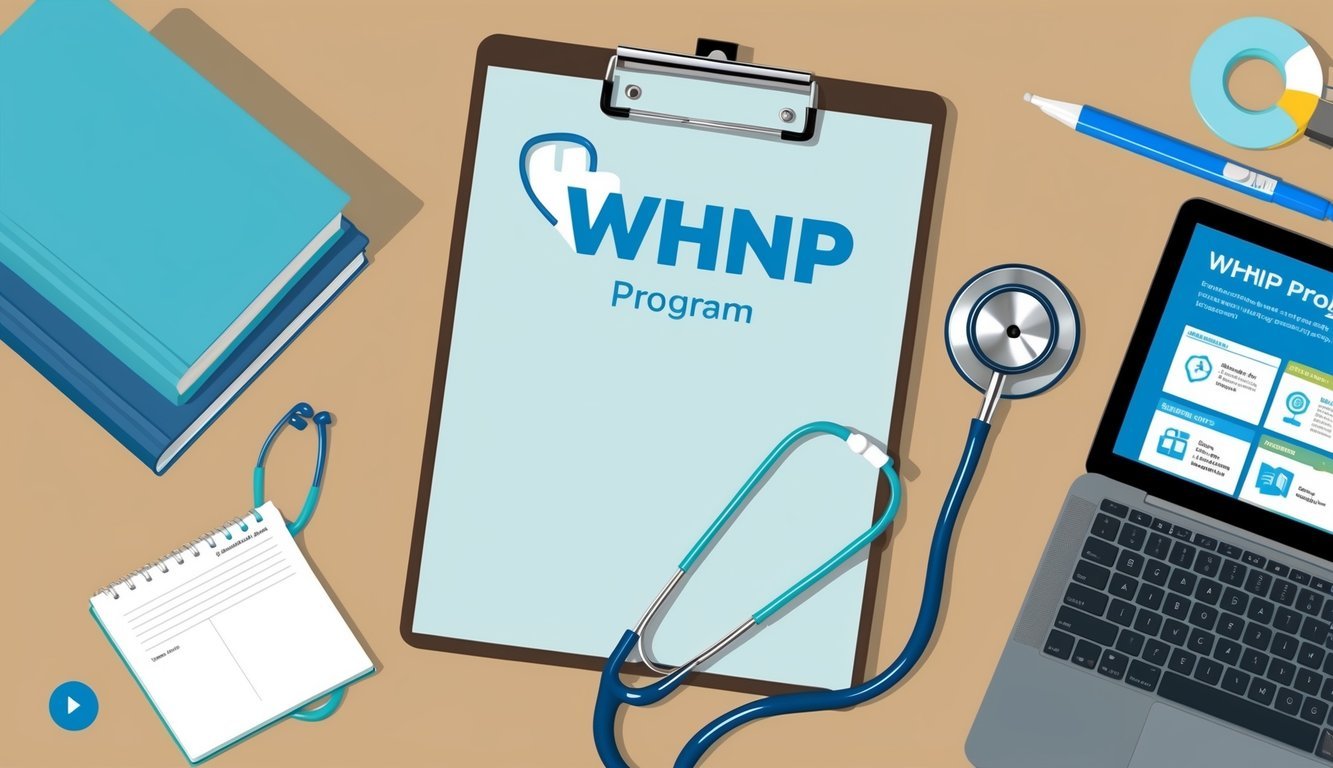As you explore the field of advanced practice nursing, you may find yourself drawn to the role of a women’s health nurse practitioner (WHNP). WHNP programs usually offer both Master of Science in Nursing (MSN) and Doctor of Nursing Practice (DNP) degrees.
These degrees equip you with the skills needed for comprehensive care of women throughout their lifespan. These programs combine theoretical knowledge with hands-on clinical experience to prepare you for various healthcare settings.
Enrolling in a WHNP program will provide you with a strong foundation in women’s health, covering topics like reproductive health, prenatal care, and chronic disease management.
Many institutions offer both online and campus-based options, making it easier for you to find a program that fits your schedule and learning style.
To find the best fit, you can compare program highlights, cost, and curriculum details from various institutions.
Obtaining your WHNP certification opens doors to a rewarding career in nursing.
You will play a vital role in advocating for and delivering care to women, significantly impacting their health and well-being.
For in-depth insights on top WHNP programs, explore resources that evaluate various educational paths, as they can guide you in making an informed decision about your nursing career.
Overview of WHNP Programs

Women’s Health Nurse Practitioner (WHNP) programs provide specialized education for nurses aiming to deliver comprehensive care to women throughout their lives.
These programs focus on different educational pathways, ensuring that you have the necessary knowledge and skills for effective practice.
Essential Components
WHNP programs typically include a blend of coursework and clinical practice.
Key components often cover:
- Clinical Training: Hands-on experience in gynecology, obstetrics, and primary care.
- Core Curriculum: Studies in pharmacology, advanced health assessment, and women’s health issues.
- Capstone Projects: A final project demonstrating your competence in clinical practice.
These programs usually last between 1 to 2 years, depending on whether you choose a Master of Science in Nursing (MSN) or Doctor of Nursing Practice (DNP) pathway.
Accreditation from recognized bodies ensures that your education meets high-quality standards, which is crucial for your professional practice.
For state-specific accreditation details, refer to resources like the Nursing Process.
Comparing MSN and DNP Pathways
When considering WHNP programs, two primary pathways are available: MSN and DNP.
| Aspect | MSN | DNP |
|---|---|---|
| Program Length | Generally 1-2 years | Typically 2-4 years |
| Focus | Clinical competence and leadership | Executive leadership and system transformation |
| Capstone Requirement | Clinical project | Evidence-based practice project |
The MSN pathway primarily prepares you for advanced practice roles.
In contrast, the DNP emphasizes leadership and clinical research, suitable for roles in administration or education in nursing.
Understanding these differences can help you align your career goals with the right program to meet your aspirations.
For more details, visit the National Organization of Nurse Practitioner Faculties.
Accreditation and Certification
When choosing a Women’s Health Nurse Practitioner (WHNP) program, it’s crucial to understand the importance of accreditation and certification.
These elements ensure that your education meets industry standards, allowing you to provide competent care.
Accreditation Bodies
Accreditation is vital for ensuring that your WHNP program meets quality educational standards.
Prominent accrediting bodies include the Commission on Collegiate Nursing Education (CCNE).
Programs accredited by the CCNE are recognized for their rigorous curriculum and adherence to best practices.
To verify if a program has the right accreditation, you can consult the CCNE website.
Graduating from an accredited program is crucial as it often affects eligibility for certification and licensure.
Here is a quick overview:
| Accreditation Body | Focus |
|---|---|
| CCNE | Program quality in nursing education |
| NLN Accreditation | Nursing education quality and innovation |
Certification Process
After completing your accredited WHNP program, you must pursue certification to practice.
The National Certification Corporation (NCC) administers the WHNP certification exam.
You will need to provide proof of your educational qualifications and a current RN/NP license to become eligible.
The certification process generally includes the following steps:
- Complete an accredited WHNP program: Ensure that your program is recognized.
- Apply for the NCC exam: Submit application materials and pay the required fees.
- Pass the certification exam: Prepare for the exam, which tests your knowledge in women’s health.
Certification rates are relatively high, reflecting the quality of accredited programs.
This credential not only enhances your professional credibility but also opens up various career opportunities.
For more details, visit the National Certification Corporation.
Curriculum and Clinical Training

In WHNP programs, you will engage in a comprehensive curriculum designed to equip you with essential knowledge and skills.
This includes core coursework, hands-on clinical practicum, and specialized clinical skills tailored for women’s health.
Core Coursework
The core coursework in WHNP programs emphasizes primary care and reproductive healthcare.
Courses typically cover topics such as:
- Anatomy and Physiology
- Advanced Pathophysiology
- Pharmacology in Women’s Health
- Women’s Health Policy and Legal Issues
You can expect a combination of theoretical knowledge and practical application.
The curriculum often comprises about 42 to 70 credits, depending on the program.
These courses lay the foundation for comprehensive patient care.
Advanced practice registered nurses (APRNs) are prepared to address the unique health needs of women across their lifespans.
Clinical Practicum
Clinical practicum experiences are critical for applying your learning in real-world settings.
Most programs require substantial clinical hours, often around 720 to 1,000 hours, depending on the specific program.
During your clinical training, you will work under the supervision of experienced healthcare professionals.
This allows you to develop your clinical skills in various areas, including:
- Family planning
- Gynecology
- Prenatal and postnatal care
Your practicum experiences are designed to enhance teamwork within a healthcare team, ensuring you are well-prepared for collaborative practice upon graduation.
Specialized Clinical Skills
Specialized clinical skills are vital for effective practice as a WHNP.
You will learn to perform various procedures relevant to women’s health, such as:
- Pelvic examinations
- Contraceptive counseling
- Screening for STIs
Courses will also focus on advanced assessment techniques and diagnostics specific to gynecological care.
By the end of your training, you will have refined your ability to provide comprehensive health care tailored to women’s needs.
Proficiency in these skills fosters confidence as you transition from academic settings to clinical practice.
Online WHNP Programs and Distance Learning
With the rise of technology in education, online WHNP programs are becoming a popular choice for aspiring Women’s Health Nurse Practitioners.
These programs provide flexibility while ensuring that you receive a comprehensive education that includes essential theoretical knowledge and clinical experience.
Advantages of Online Learning
Online WHNP programs offer significant flexibility, making it easier for you to balance your studies with personal and professional commitments.
Institutions like Georgetown University provide a distance-learning format that allows you to study from anywhere, eliminating the need for daily commuting.
Many programs also adapt to different learning styles, using various teaching methods such as video lectures, discussion boards, and interactive quizzes.
This can enhance your understanding of complex topics.
Moreover, online programs often require fewer campus visits, which is ideal if you have a busy schedule.
You’ll also find that tuition costs for online options can be competitive compared to traditional programs, making education more accessible.
Clinical Placement and In-Person Requirements
While online learning offers flexibility, clinical placement remains a crucial component of your education.
Many programs, including those at Duke University, require a specific number of in-person hours to ensure you gain hands-on experience.
Expect to engage in supervised clinical placements within your local area.
This may involve securing your own sites or working with the program’s coordinator to find suitable locations.
Additionally, some programs might have on-campus requirements for orientations or workshops, but these visits are typically minimal.
It’s essential to understand the exact clinical and in-person requirements for each program you consider.
Researching institutions thoroughly will help you find an option that fits your educational and logistical needs.
Costs, Admissions, and Outcome Metrics

Understanding the financial and admission landscape is essential for those considering WHNP programs.
This section covers crucial aspects such as tuition fees, financial aid options, admissions criteria, and post-graduation success.
Tuition Fees and Financial Aid
Tuition costs for WHNP programs can vary significantly depending on the institution and program type.
Typically, tuition ranges from $500 to $1,000 per credit.
For example, the University of Minnesota charges approximately $973.75 per credit for their online DNP program.
To manage these costs, you may find a variety of financial aid options, including federal loans, scholarships, and grants.
Many schools provide information on available financial assistance.
It’s beneficial to explore applications for scholarships, particularly those aimed at nursing professionals.
| Program | Tuition/Credit | Total Credits Required | Estimated Total Cost |
|---|---|---|---|
| University of Minnesota | $973.75 | 80 | $77,900 |
| Emory University | Varies | 46 | Approx. $45,000 |
| University of Utah | Varies | 80 | Approx. $80,000 |
Admissions Criteria
Admission requirements for WHNP programs usually include a Bachelor of Science in Nursing (BSN), a valid RN license, and a minimum GPA, often around 3.0.
Some programs also expect relevant clinical experience.
Additionally, you may need to submit letters of recommendation, a personal statement, and GRE scores, depending on the institution.
Keep a close eye on application deadlines and specific requirements as they can differ significantly across programs.
Post-Graduation Success
The outcomes for graduates of WHNP programs tend to be promising.
Many programs report high pass rates on national certification exams.
For example, Emory University has been noted for its strong pass rates, reflecting the quality of their education.
Employment opportunities post-graduation are abundant in various settings, including clinics, hospitals, and private practices.
You can expect competitive salaries, often exceeding $100,000 annually, depending on your location and experience.
Programs may also offer resources for job placement and networking opportunities, which can enhance your career trajectory in nursing leadership or even a post-master’s certificate if you choose to further your education.
Focus on Health Equity and Quality of Care
Addressing health equity is crucial for enhancing the quality of care in women’s health.
Implementing a comprehensive health equity curriculum and delivering culturally-responsive care can significantly improve health outcomes for diverse populations.
This ensures that all women receive the care they need.
Incorporating Health Equity
A robust health equity curriculum is essential in WHNP programs.
This curriculum emphasizes:
- Understanding Disparities: You will learn about the socio-economic, cultural, and systemic factors that contribute to health disparities, particularly in women’s health.
- Patient-Centered Approaches: Incorporating strategies that focus on the unique needs of women, including preconception and reproductive health care, is vital. Such approaches foster better engagement and health outcomes.
- Community Health Centers: Collaborating with local community health centers allows you to reach underserved populations, providing necessary gynecologic healthcare.
Programs that integrate these elements prepare you to advocate for health equity and address barriers that contribute to disparities in health care access and quality.
Delivering Culturally-Responsive Care
Culturally-responsive care involves understanding and respecting each patient’s unique background and beliefs.
Key aspects include:
- Effective Communication: Developing skills to engage with patients from diverse cultural backgrounds ensures their values inform the care they receive.
- Tailored Health Education: Providing education that resonates with patients’ cultural contexts can improve their understanding and adherence to medical recommendations.
- Collaboration with Community Leaders: Engaging with local leaders can enhance trust and facilitate better health outcomes within communities.
By focusing on delivering culturally-responsive health care, you ensure that women receive comprehensive care that addresses their individual needs and promotes health equity.
For more information on health equity initiatives, you can explore Nursing Programs for Health Equity.

